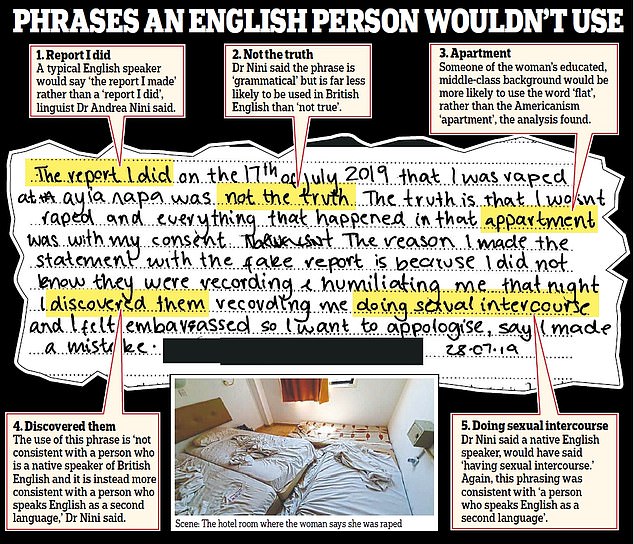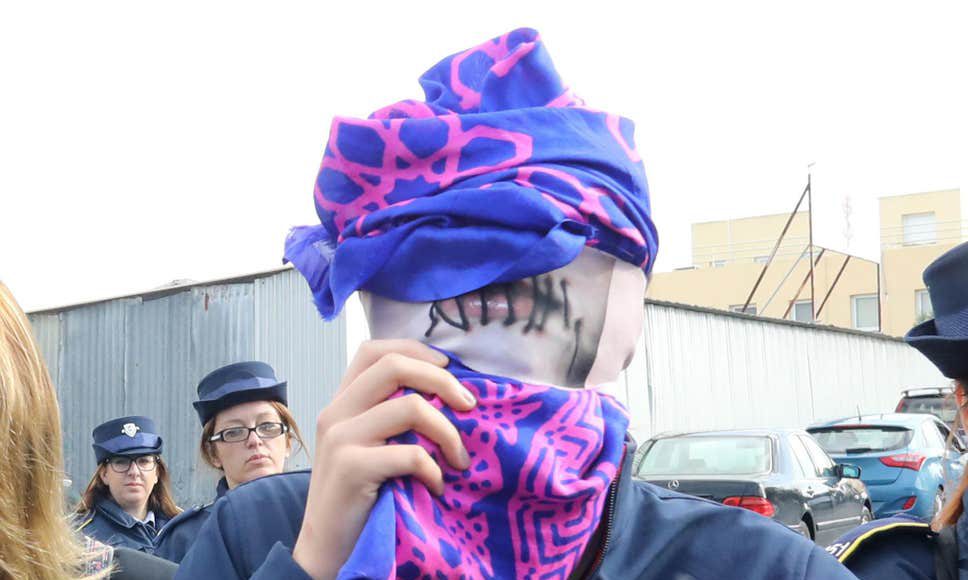The president and the attorney general of Cyprus have been urged to intervene in the controversial case of a British woman found guilty of lying about being gang raped.
A 19-year-old woman, who claims she was gang raped by a group of young Israeli men at a hotel in the Cypriot party resort of Ayia Napa in July, has said she was forced to sign a confession withdrawing the complaint.
The teenager, whose identity has not been revealed, is facing a year in prison after a judge on Monday ruled she had lied to police when she made the rape allegations against the men.
The student was ruled by a judge in Cyprus to have wilfully indulged in public mischief by claiming she was raped by a group of Israeli males while on holiday in Ayia Napa in July.
The young woman, who will be sentenced on 7 January, was jailed for four and a half weeks during the summer in a prison in the capital Nicosia that has been criticised for overcrowding and degrading treatment.
Dr Christine Tizzard, a chartered consultant psychologist who extensively assessed the woman for the defence, also said the 19-year-old now needs urgent therapy to avoid “life-changing” damage.
The foreign secretary, Dominic Raab, has promised to raise the “deeply distressing” case with the Cypriot authorities and contact has been made between officials from the two countries. Earlier, the Foreign Office said it was “seriously concerned” about the fairness of the trial.
Michael Polak, a British human right lawyer from Justice Abroad, a legal aid group providing help to the teen’s family, told The Independent: “There are calls for the attorney general to take over her case and end it and pardon her. We are calling for him to intervene.”
“We want the teen to leave Cyprus without a conviction. A conviction will affect jobs she can do in the UK and associations and groups she can be a member of. There has been a grave injustice here. The teenager has suffered a lot during and since being raped. She is determined to get justice in Cyprus or at the European Court of Human Rights if need be.”
Mr Polak said they were asking for an expedited appeal against the verdict so it can be heard quickly, as otherwise it could take around two years for an appeal hearing at the Cypriot Supreme Court.
He added: “There were various grounds for appeal – including the approach of the trial judge to the case. A number of times in the case, he shouted ‘this is not about rape, this is not a rape case’, closing his mind to the possibility she had been raped.”
Mr Polak said he hoped the teenager, who pleaded not guilty, would receive a non-custodial or suspended sentence but argued there was “a real possibility” she will be sentenced to imprisonment.
The lawyer said it was still unclear whether the young woman, who has missed out on her place at university due to the case, would be able to return to the UK or not.
The teenager had her passport confiscated and has not been able to leave the Mediterranean island since the alleged gang rape occurred on 17 July despite mounting international outrage over the case.
Petros Clerides and Alecos Markides, two former attorney generals in Cyprus, and former justice minister Kypros Chrisostomides urged the current attorney general, Costas Clerides, to intervene in the case in a joint letter.
Lawyers in both Cyprus and the UK told The Times they were calling for Nicos Anastasiades, the president of Cyprus, to pardon the young woman.
But a spokesperson for the Cypriot government said they had “full confidence in the justice system and the courts” and argued they “should be left unfettered to implement state laws and deliver justice”.
Additionally, forensic linguist Dr Andrea Nini told Daily Mail that the letter confessing that the student had not been raped could not have been composed by her and was likely composed by a non-English speaker.

With reference to The Independent UK, The Guardian and The Daily Mail.
